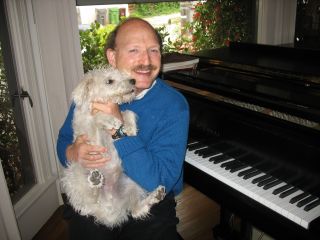Play
Use of Music in Counseling and Coaching
Artistic ability—music, photography, even coffee-making—can enhance sessions.
Posted October 2, 2015

Of course, there's music therapy. But even in traditional counseling and coaching, music can be a potent and enjoyable tool in sessions, even if you're not a musician.
I do play the piano and so, often when a client comes in for a first session, especially if their new client questionnaire indicates s/he loves music, I offer to play something for him or her. Almost always, clients consider it a pleasant surprise and gift.
But what if you don't play an instrument? Offering to play a tune on your stereo would be weird—but not always. I recall a new client who, on her questionnaire, wrote that she liked Black gospel music. I do too. So before we started our session, I said, "My favorite gospel song is John P Kee and the New Life Choir doing 'He's the Greatest.'" She said she hadn't heard it. I asked if she'd like me to play the YouTube clip of it. She did, loved it, and this Jewish/atheist older white guy got off to a bonded start with a young Black woman.
During a session, I often find it wise to use music this way. When we've developed a career plan, I might say, "As a way of giving you a little time to get in touch with how you really feel about the plan, as well as to get us out of our intellectual selves and into the emotional, I'd like to play soft music on the keyboard for 90 seconds. Close your eyes, perhaps take some deep breaths, and get in touch with how you're feeling about the plan. After the 90 seconds, I'll simply ask you what you're feeling. Sound good?" They always agree. I then usually play "For Good" from the Broadway show, Wicked. Although it's instrumental, the words are about mentorship, so it feels right to me. Or I might play, "They Were You" from The Fantasticks or "Over the Rainbow." Almost always, after the 90 seconds, the client says something important. Of course, you needn't play an instrument to do this. You could play a cut from a CD, mp3, or a YouTube video.
I've also used music to provide a needed break. I recall a time a client was offended when I brought up the possibility that her inability to convert job interviews into a job offer may be partly caused by her being very overweight—many people are biased against obese people. She responded by saying she was offended that I brought it up. I explained that part of my job is to raise issues that someone other than your coach might be reluctant to. That didn't work. She seethed, "I think we should stop the session right now." I responded, "Of course, you should do what you think is right but I'm wondering if it might be worth taking a minute or two to reflect. How about I go to the piano and play some soft music for a minute or two and then you tell me what you want to do." I did and she decided to continue the session. Again, you needn't play an instrument to use this technique. A cut from an album could work too.
I've used music at the end of a session, especially a stressful one. I have said things like, "You worked hard this session. Might you enjoy my playing something for you on the piano before you leave?" If the client says yes, s/he invariably appreciates it. If you don't play piano, guitar, or somesuch, that won't work, but I share it here for completeness, just in case you do.
Music isn't the only option
The larger point is that you may have some ability that you might not think could be incorporated into counseling yet could be. For example, if you're a photographer, perhaps you might take a photo of your clients asking them to exude their ideal self: confident, calm, whatever. Email them the image and invite them to print it out and keep it on their desk as a reminder of that ideal self. If you're a hiker, you might, as appropriate, ask if the client would find it freeing to do a session while hiking. If you make great coffee, you might start the session by asking the client if s/he'd like some. I occasionally start a session while making coffee. The informal atmosphere can relax a client and engender more candor.
Counseling and coaching, alas, remains as much art as science. It requires bringing all of you to the session. Is there something non-traditional you might bring?


